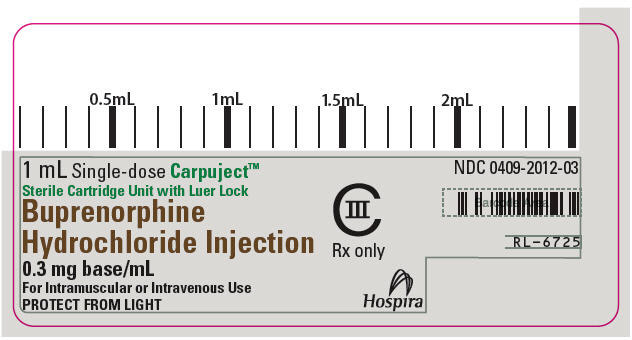A group of doctors defended themselves in a disability discrimination lawsuit brought by the US Attorney’s Office for the District of Massachusetts by claiming that their denial of care to patients prescribed medication for opioid use disorder was due to discomfort managing their post-surgical pain. It appears to be the first legal attempt to make such an argument.
Fortunately for opioid use disorder (OUD) patients in a country whose federal government has sought to chill opioid prescribing for pain patients, the defense did not hold up. On May 20, US Attorney’s Office for the District of Massachusetts (USAMA) announced a settlement had been reached with the defendant, New England Orthopedic Surgeons (NEOS).
According to the settlement agreement, NEOS violated the Americans with Disability Act (ADA) by imposing “eligibility criteria that screened out individuals with disabilities”—in this case, OUD patients—“on the basis of their disability.”
In addition to violating patients’ civil rights, the agreement states that NEOS failed to comply with the mandatory procedures of Baystate Medical Center, the hospital in which it operates. Surgeons there were required to maintain patients already taking prescribed buprenorphine on their medication before, during and after surgery. According to the agreement, this was never implemented by NEOS.
Instead, NEOS turned away two Suboxone patients seeking full-joint replacements because the “surgeons were not comfortable with the post-operative pain management protocol needed.”
NEOS did not respond to Filter’s requests for comment. USAMA’s spokesperson declined to comment.
“The Americans With Disabilities Act protects healthcare access for people under medical treatment for Opioid Use Disorder,” said Acting US Attorney Nathaniel R. Mendell in a press release. “Health care providers must comply with the ADA, even when doing so is inconvenient or makes them uncomfortable.”
“That the provider claimed that they couldn’t adequately provide pain treatment to a person receiving buprenorphine doesn’t really make any difference from a legal standpoint.”
NSEO’s defense appears to be novel. “It is the first where the defendant tried to justify its practices due to alleged concerns about pain management,” Sally Friedman, the lawyer and legal advocacy director of Legal Action Center, an organization defending the rights of people with substance use disorders (SUD), told Filter. The reason for this may be simple: It’s not a smart strategy.
“The fact that the provider claimed that they couldn’t adequately provide pain treatment to a person receiving buprenorphine doesn’t really make any difference from a legal standpoint,” Corey Davis, lawyer and director of the Harm Reduction Legal Project, told Filter. “They were discriminating against that person because of their disability.”
NEOS has agreed to maintain and make available to USAMA a log of any patient prescribed medication for opioid use disorder (MOUD) who is receiving or seeking full-joint replacement and has been denied any care. It also agreed to notify USAMA of any complaints made by any MOUD patient alleging a denial of care on the basis of their medication; to draft a non-discrimination policy; to pay each victim $15,000; and to train staff and contractors on MOUD and disability discrimination.
“The settlement sends a strong signal that health care providers may not deny care based on assumptions and stereotypes about people receiving MOUD—even where pain management is concerned,” said Friedman.
Although the determinations of the settlement are “not legally binding on other entities,” in contrast to some courts’ decisions, Friedman said they’re still an asset. “Advocates can point to [the settlement], and courts can take note that the US Department of Justice views this type of conduct as illegal.”
USAMA has enforced the ADA on behalf of OUD patients many times before. The NEOS lawsuit was its fifth since 2018. Three were with distinct skilled nursing facilities in May 2018, September 2019 and December 2020. The fourth was with Massachusetts General Hospital—a top-ranked facility with a robust package of SUD services—in August 2020.
Radio announcement by USAMA describing disability rights protections for OUD patients
USAMA’s track record on advocating for OUD patients sets it apart from other Offices of US Attorney, most of which “do not appear to be focusing on these cases,” Davis said. “Hopefully, the continued pursuit of providers who discriminate in this way will convince other US Attorney’s offices to pursue similar violations in their districts.”
Although USAMA has enforced disability rights protections for OUD patients, the Office has also participated in the country’s widespread efforts to block access to pharmaceutical opioids for people who need them, including pain patients.
USAMA has sent cautionary letters to medical providers warning them about their opioid prescribing practices in order to “stem the flow of opioids to the public,” former US Attorney Andrew Lelling said in November 2018.
Additionally, USAMA has prosecuted multiple prison staff members for trying to provide unprescribed Suboxone (a branded combination of buprenorphine and naloxone) to incarcerated OUD patients. It even prosecuted a nurse taking prescribed Suboxone for sharing just five of her own doses with two people involuntarily confined at a civil commitment program for SUD patients.
“There does seem to be a tension between the DOJ’s pursuit of cases of discrimination against people receiving buprenorphine and methadone for OUD,” said Davis. “And the well-documented fact that some pharmacies refuse to dispense buprenorphine because of (mostly unfounded) fears that doing so may result in investigation by the DEA (which is part of the DOJ).”
Photograph via National Institutes of Health




